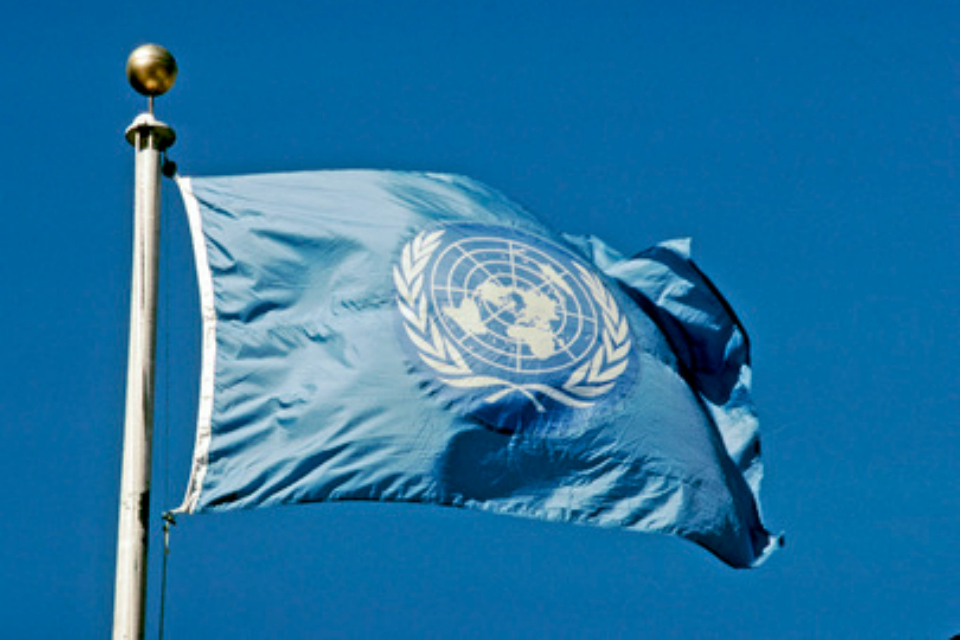"All Member States must recognise and respect that there can be no ifs, no buts: sanctions agreed in this Council are legally binding"
Statement by Ambassador Matthew Rycroft, UK Permanent Representative to the United Nations, at the Security Council meeting on sanctions.

Thank you Mr President and thank you to Assistant-Secretary-General Zerihoun for your briefing which has made clear this morning that sanctions are a vital part of the Security Council’s arsenal. As article 41 of the United Nations Charter makes clear, they give real effect to our decisions – turning words in this Chamber into tangible actions against those who threaten international peace and security.
They are not our first resort, nor are they a measure that we can ever take lightly, but we know that sanctions work. They helped bring peace and security to countries like Liberia and Sierra Leone. They helped bring Iran to the negotiating table, which led in turn to the Joint Comprehensive Plan of Action. And sanctions continue to play a vital role in the fight against Daesh and Al-Qaeda in Iraq, Syria, and beyond.
All of these examples, Mr President, illustrate not just the efficacy of sanctions, but the importance of using them together with the other tools at our disposal. The Iran Deal was not forged from sanctions alone. Our victory over Daesh won’t be secured through the hard work of the 1267 Committee alone. Sanctions must sit alongside all our other tools; direct political dialogue, mediation, peacekeeping, special political missions.
And just as with all other tools of this Council, it is important that sanctions remain fit for purpose.
So I want to thank you, Mr President, for bringing this issue before the Council again so that we can consider if there are further ways to improve our collective work on sanctions.
All future work on sanctions should build on the great deal of valuable work that has already been carried out by States and stakeholders on this issue. In particular, I want to highlight both the work of the UN Informal Working Group from 2006 and also the High-Level Review of UN Sanctions led by Sweden and other co sponsors. They have produced good recommendations but, as we all know, building the political commitment required for effective follow-up has been challenging.
This issue of political will applies above all when it comes to serious implementation of sanctions. For these measures to be truly effective, it is absolutely essential that all States implement them fully. It isn’t good enough just for the majority of countries to do so; a chain is only as strong as its weakest link.
All Member States must recognise and respect that there can be no ifs, no buts: sanctions agreed in this Council are legally binding Chapter VII obligations.
I recognise that even when there is strong political will, implementation can be challenging, not just for States but also for businesses. There is already much good work in this area – outreach from Sanctions Committees, the development of networks and capacity-building, the sharing of information and best practices between states – but a great deal more could still be done, especially on the most important of sanctions dossiers such as North Korea where the number of States reporting on implementation still falls far short of what it needs to be.
That’s why, Mr President, we welcome further consideration of your delegation’s recent suggestion for a Secretary-General’s report on cross-cutting issues related to sanctions. If this report builds on the existing work I have referred to, draws lessons from current sanctions regimes, and offers concrete, practical suggestions on how to improve implementation and effectiveness, then we think this could be a valuable addition to our sanctions work; one that will help set a clear agenda for further improvements, building on the High-Level Review and other efforts.
And Mr President, there is quite simply no clearer reminder of the need for strengthening our sanctions capability than the current situation that we confront in relation to North Korea.
Here we face a State that continues to act in flagrant violation of multiple Security Council resolutions, a State that continues to threaten not just its region but the whole world in its reckless pursuit of nuclear weapons and illegal missiles. Their latest ICBM launch just last week suggests a capability that puts most Security Council members, including the UK, within range. I have said before in this Chamber but it bears repeating today: we as a Security Council must act and we must be prepared to use sanctions to raise the cost for DPRK in pursuing these illegal actions.
Thank you.